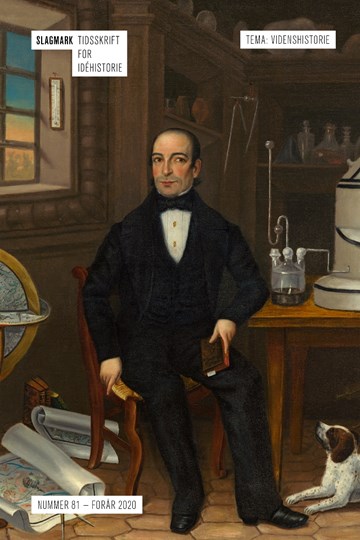Formens makt og materialitet: Om studiet av kunnskapens former i katekismer og skipslogger
DOI:
https://doi.org/10.7146/slagmark.vi81.136336Nøgleord:
Forms of knowledge, circulation of knowledge, history of knowledge, catechism, ship’s logResumé
The power and materiality of form. On studying the forms of knowledge in catechisms and ship’s logs.
The article argues that in the emerging field of the history of knowledge, with its focus on the production, circulation and exchange of knowledge, explorations of forms will represent a valuable addition. Form is related to genre. Yet, while the identification of genres is largely based on linguistic, literary or rhetorical criteria, form is also about structures and materiality as well as about practical and institutional preconditions. Form often attracts less attention than contents, although the form makes this content recognizable as knowledge. Our argument builds on the exploration of two different early modern knowledge forms, the catechism and the ship's log respectively. Both demonstrate how form is decisive in defining contents as authoritative knowledge. They also illustrate how form is a prerequisite to enable knowledge to circulate and be part of cultural exchange, and thus to be socially efficient. The forms serve to codify existing knowledge, but also to the production and circulation of new insights. When forms like the log and the catechism are examined historically, however, they can also be seen to live their own lives in a tension between stability and change. The forms themselves become objects of negotiations, change and innovation.
Downloads
Publiceret
Citation/Eksport
Nummer
Sektion
Licens
Ophavsretten til artiklerne i Slagmark deles mellem forfatter og Forlaget Slagmark.
Artikler og tekstmateriale publiceret i Slagmark må citeres, downloades og videresendes for ikke-kommerciel brug, under forudsætning af normal akademisk reference til forfatter(e) samt tidsskrift, årgang, nummer og sider.
Brug og distribution af tekstmateriale både i form af papirkopier og elektroniske kopier, til undervisningsbrug på uddannelsesinstitutioner og intern brug er tilladt efter aftale med Copydan Tekst & Node. Brugen skal ske inden for aftalens rammer.
Artikler og tekster må kun genudgives med eksplicit tilladelse fra forfatter(e) og tidsskriftet med en anerkendelse af værkets første publicering i nærværende tidsskrift.





